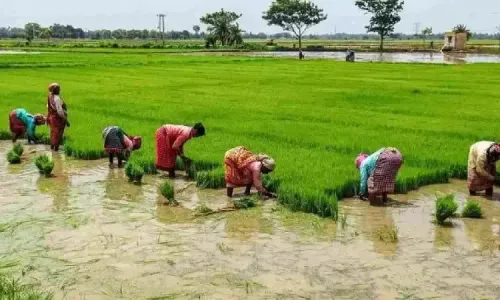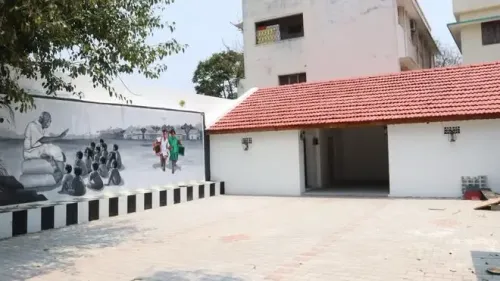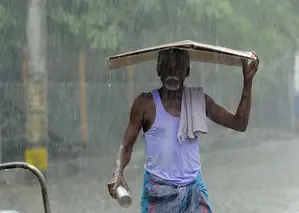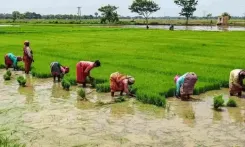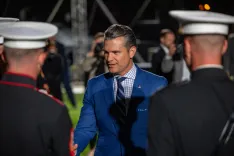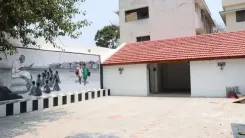'One Nation, One Election' is a Progressive Step in Democratic Reform, Asserts TN BJP Chief Annamalai
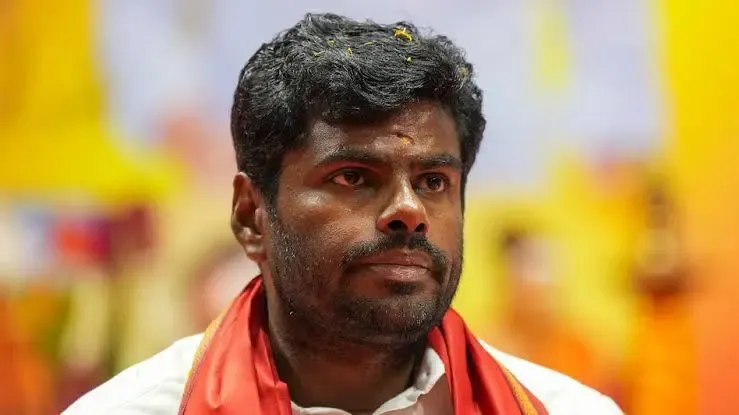
Synopsis
Key Takeaways
- 'One Nation, One Election' promotes national thinking in regional parties.
- The system aims for implementation by 2034.
- Equal voting rights have been a cornerstone of Indian democracy since Independence.
- Simultaneous elections can prevent voter apathy.
- A unified voter list could simplify the electoral process.
Bengaluru, March 14 (NationPress) Tamil Nadu BJP chief and retired IPS officer Annamalai asserted that the implementation of 'One Nation, One Election' would encourage regional parties to adopt a national perspective and prompt national parties to pay attention to regional concerns.
During an event centered on 'One Nation, One Election' at Jain University in Jayanagar, he underscored that a robust democratic framework necessitates the participation of all citizens in voting.
He claimed that 'One Nation, One Election' is a move in favor of public welfare and a reform in democracy, rather than an imposition. If all goes according to plan, this system could be operational by 2034, he noted.
He highlighted the importance of the youth's involvement in the democratic process and voting, emphasizing that India has maintained the principle of equal voting rights for all since its Independence, irrespective of gender.
The initial general elections were conducted in 1951-52 across seven phases. In 1957, the second elections occurred, and simultaneous elections for state assemblies and Parliament were also held in 1952, 1957, 1962, and 1967.
However, in 1970, the Lok Sabha was prematurely dissolved, and the Kerala state government, led by the Communist Party, was put under President’s Rule.
He pointed out that this was a breach of constitutional principles, as several non-Congress state governments were dismissed during the Emergency and subjected to President’s Rule. The Janata Party, which subsequently came to power at the Centre, adopted a similar approach, he mentioned.
With 28 states in India, elections have turned into a continuous affair. The 45-day Model Code of Conduct period obstructs development endeavors, while the preparation of voter lists takes approximately six months, he asserted.
He noted that each state loses at least seven-and-a-half months due to election-related activities.
Government officials, such as teachers and CRPF personnel, are assigned election duties. The 'One Nation, One Election' proposal includes a unified voter list, allowing citizens to vote for both MPs and MLAs with a single button press. Both the NITI Aayog and the Law Commission back the initiative, indicating that the time is ripe for its execution, he stated.
In 2019, 16 political parties endorsed the concept of simultaneous elections, while only three parties, including the CPM, opposed it. The dialogue concerning 'One Nation, One Election' has been ongoing since 1932, he pointed out.
He also asserted that this system could aid in combating voter apathy and fostering greater youth engagement in elections.
Jayanagar MLA C.K. Ramamurthy, Naveen Shivaprakash, State Coordinator of the One Nation, One Election Awareness Committee, former MLC and State Co-Coordinator Ashwathnarayan, Jain University Vice President Ravindra Bhandari, Joint Secretary Santosh, retired IPS officer Bhaskar Rao, and Jain University Registrar Dr. Jitendra Mishra were present at the event.

